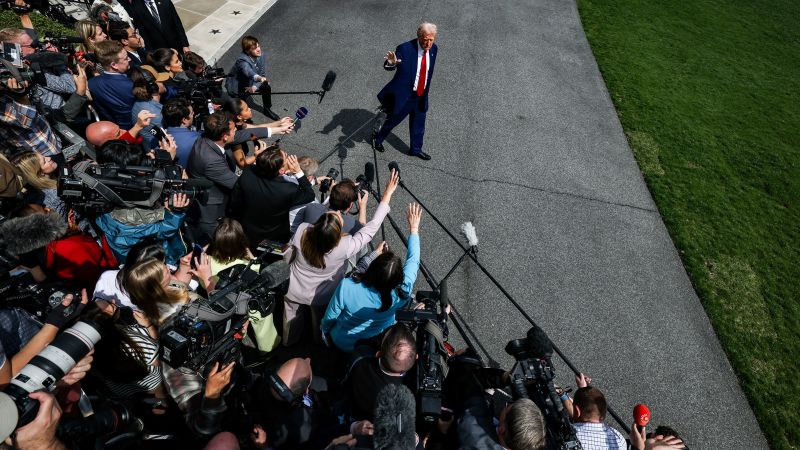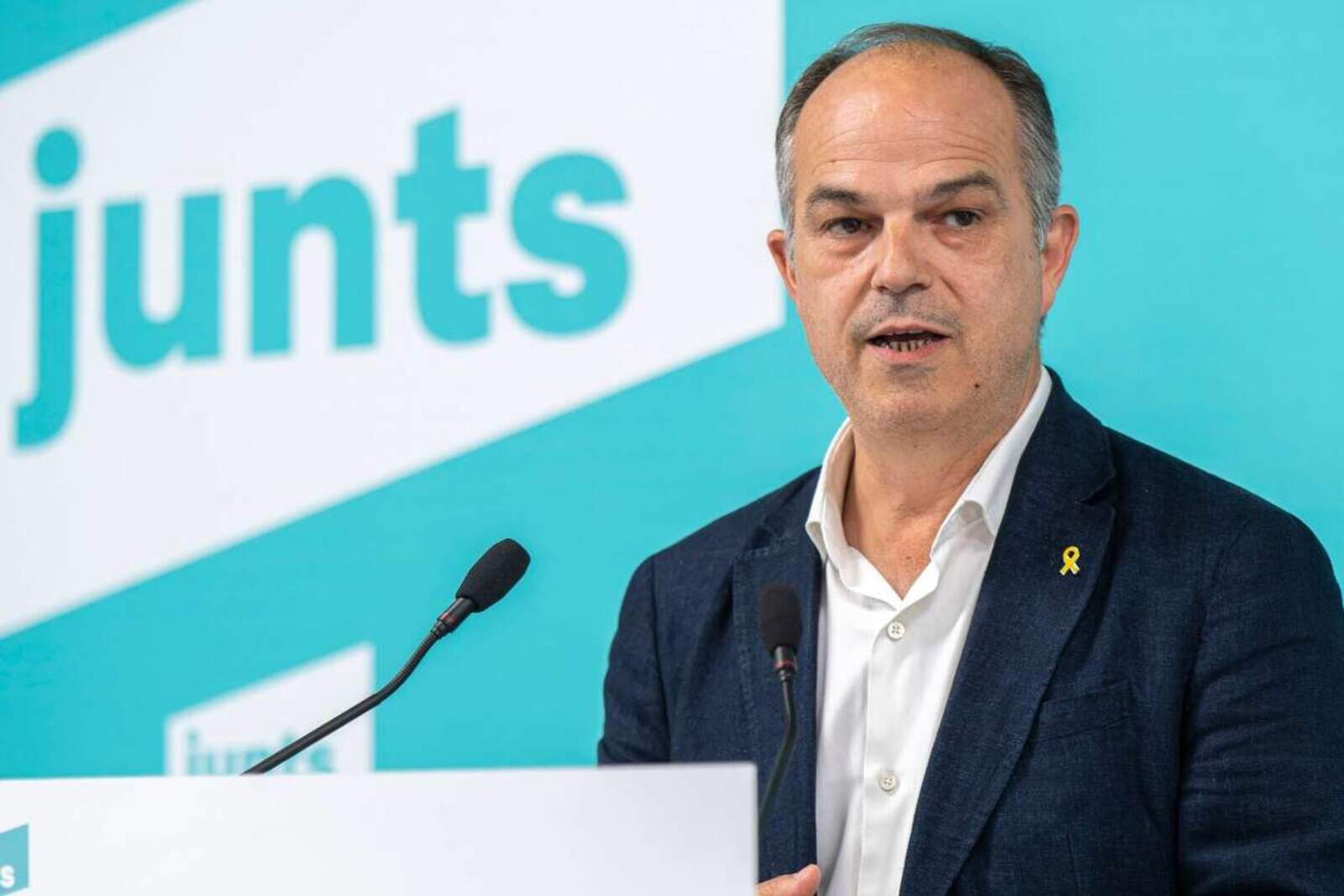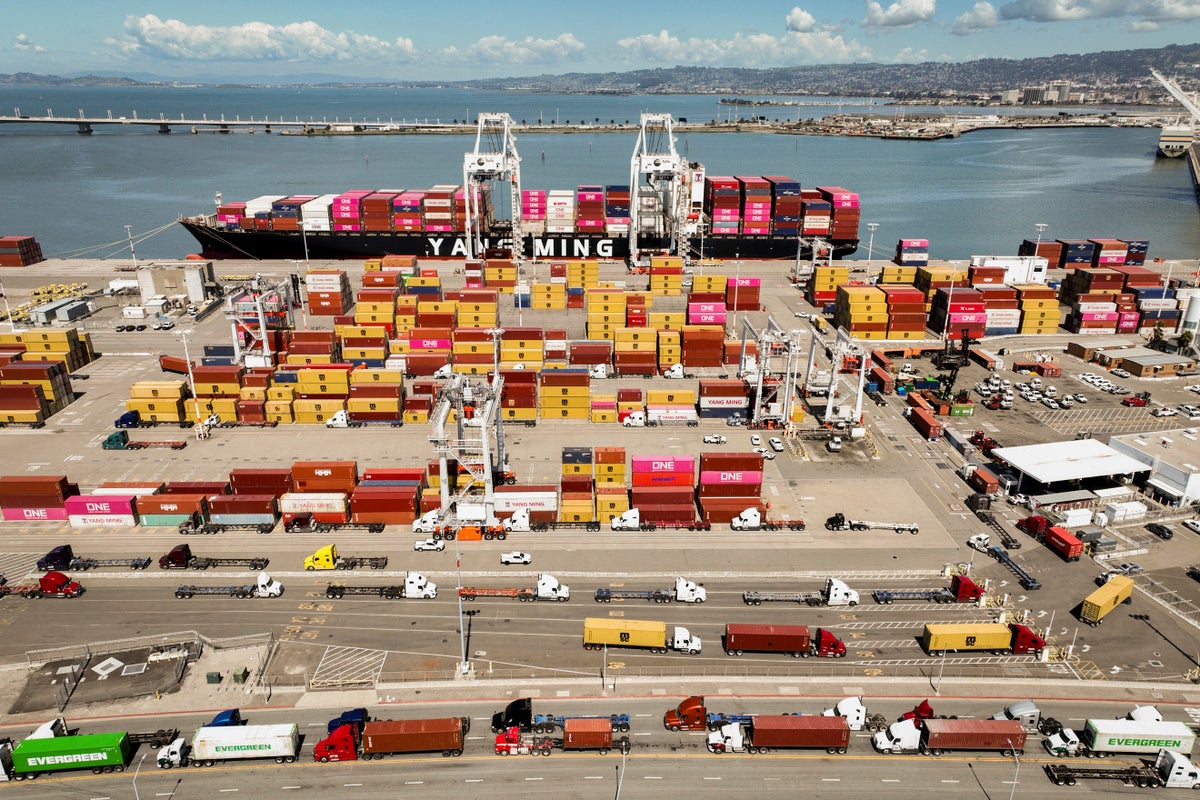Bad things can happen when presidents seem to lose their grip on reality. After a day of stock market shocks and global recriminations, there are reasons to question whether President Donald Trump fully grasps the consequences of the tariff barrage that he used to fire up a global trade war. “I think it’s going very well,” Trump told reporters Thursday, in the aftermath of his “Liberation Day” announcement the day before.
“It was an operation like when a patient gets operated on and it’s a big thing,” Trump said. “We’ve never seen anything like it. The markets are going to boom.

The stock is going to boom. The country is going to boom.” As chaos whipped across the planet and American seniors dreaded looking into depleted market-linked retirement savings accounts, Vice President JD Vance said, “We’re feeling good.
” He told Newsmax: “Look, I frankly thought in some ways it could be worse in the markets because this is a big transition.” Their bravado followed the worst day on Wall Street in five years, where $2.5 trillion was wiped off the S&P index.
This financial carnage was not caused by some act of God, like a pandemic, or natural disaster, terrorist attack or foreign crisis. It was the result of a conscious choice by a president making a gut check call. And there are growing signs of confusion about the White House’s strategy, just weeks after Trump inherited an economy that was humming when President Joe Biden handed it over and stocks hit record highs.
Trump suggested Thursday evening that his single-handed blitz against the global trading system was merely a bargaining position. “Tariffs give us great power to negotiate,” he told reporters on Air Force One as he left the growing crisis behind for one of his Florida resorts to host a tournament for the millionaire players on the Saudi-backed LIV rebel golf tour. But earlier, on “The Situation Room” on CNN, Commerce Secretary Howard Lutnick, vowed: “The president is not going to back off.
” And on Fox News, Trump’s top trade adviser Peter Navarro insisted “this is not a negotiation.” The conflicting messages and sense of drift posed fundamental questions of whether a presidential inner circle that critics have long said is delusional about the impact of a tariff war also has the competence to navigate out of the crisis. Those questions were exacerbated by the sleight of hand that the president used to deliver tariffs that he said were reciprocal and matched those that were a dollar-for-dollar match but in fact were not.
The rudimentary formula that was used to arrive at bewildering tariff rates deepened the sense of fury among US trading partners. “They know nothing,” veteran Wall Street trader Peter Tuchman told CNN’s Erin Burnett. “The formula they used .
.. it’s like apples, oranges, a couple of cashews divided by 10 times four.
” He added: “None of it makes any sense and billions and trillions of dollars are being wiped out of the market on a day-to-day basis. “It was nothing but blood on the streets.” Price hikes to come? Financial experts predicted painful price hikes to consumer goods and a resurgence of inflation — just five months after Trump won reelection with a promise to cut the costs of food and housing that bedeviled the country for years.
The immediate impact of the tariff announcements was driven home when Stellantis, which produces Chrysler and Dodge vehicles, paused production at plants in Mexico and Canada. Some 900 US-based workers were temporarily laid off. They won’t be the last if the president’s action causes an economic downturn.
The enormous risk Trump is taking with the financial wellbeing of millions of people in the US and abroad is in tune with an early second term he’s using to conduct the most extravagant power grabs that he was talked out of in his first. Trump is challenging the rule of law with his expansive claims of executive power, has unleashed Elon Musk to eviscerate the federal government — including health care programs that have saved millions of lives. Migrants are being swept up off the streets or even expelled to a vicious El Salvador jail, often in apparent denial of due process and in defiance of judges and the rule of law.
The circus that took over the White House between 2017 and 2021 is back in town. Almost unbelievable revelations about top officials discussing air attacks on Yemen on a chatroom app were followed by zero accountability for Defense Secretary Pete Hegseth for posting operational intelligence. The drama provoked the same anxiety about the competence of Trump’s national security team in a crisis as are now surrounding his economic brain trust.
In another stunning development, the White House fired multiple officials, including three National Security Council staffers after meeting Laura Loomer. The far-right activist who once branded 9/11 an inside job accused the officials of disloyalty to the president. Trump is causing havoc on his national security team while also upending decades of US foreign policy, as he has fractured confidence among America’s western allies that he’d defend them against Russia.
Why Trump’s supporters back tariffs, at least for now A recurring trend of Trump’s political career is that his most outlandish acts — from his criminal indictments to his most outrageous uses of presidential power — often unleash a hysterical reaction from critics. In the eye of the storms of his own creation, the president draws political energy from the controversy and wrong foots his opponents. So, it’s fair to ask whether Thursday’s uproar is an overreaction.
After all this is far from the first stocks sell-off in history. Top officials insist that the tariffs are a first step towards building an economy that protects American workers and rebuilds manufacturing desecrated by the loss of US factory jobs to low wage economies in Asia and elsewhere. “What you’re going to see is factories going to be built here,” Lutnick told CNN’s Pamela Brown.
“Why should US policy basically suggest that you can find the cheapest labor in the world with the worst labor conditions in the whole wide world, the worst pollution ...
no environmental rules at all, let’s go build there because it’s really cheap, and we will sell it to the great American economy?” No one can argue that the toll inflicted on former industrial heartlands is an unworthy issue for a president. And Trump is responding directly to the thwarted aspirations of millions of his voters who don’t care that Wall Street traders took a hammering or that American allies who they regard as freeloaders are angry. And since China’s entry into the World Trade Organization ended up bankrolling its spectacular rise, shouldn’t someone be asking whether a trade policy that created a superpower enemy should be adjusted? Trump’s supporters — in the democratic election that he won in 2024 — also voted for maximum disruption: He left no doubt that he’d be unleashed in a second term, even if some of his advisers suggested during the campaign, as they have this week, that tariffs would just be used as a negotiating tool rather than a permanent high barrier.
It’s the same with national security. The disapproving foreign policy elites who condemn Trump officials for lax cellphone use come from the same intellectual class that brought America the lost wars in Iraq and Afghanistan. And whether it’s fair or not, many citizens view the federal government as indifferent to their plight and ripe for Musk’s chainsaw.
“To anyone on Wall Street this morning, I would say trust in President Trump,” White House press secretary Karoline Leavitt said on CNN Thursday, trying, and failing, to calm the coming stock market mayhem. “This is a president who is doubling down on his proven economic formula from his first term.” The acid test of Trump’s popularity Wall Street traders may no longer trust Trump, but it will take more than a stock market slump to shatter the rare bond that the president enjoys with his base.
Still, if the markets crisis develops into a recession and if the temporary pain that administration officials say will pave the way to a new economic golden age turns out to be more permanent, Trump’s support may face its steepest test. Coming days may establish whether the president and his supporters are willing to pay a significant economic or political price for the fruition of campaign trail vows. And ahead of midterm elections in November 2026, Trump’s fellow Republicans may soon start to learn whether more moderate and independent voters who bought into Trump’s vaunted dealmaking and business mystique and thought he could supercharge the economy will stick with his party when he’s off the ballot.
“The challenge these tariffs are going to present is that they are almost certainly going to raise the cost of living for Americans at least in the short-term,” Republican pollster and strategist Kristen Soltis Anderson told CNN’s Kasie Hunt. “What Donald Trump is asking is for everybody to endure a little bit of short-term pain in exchange for some long-term benefit — in his view a healthy reordering of the global economy,” she said. “In politics, because we have elections every two years for Congress — saying that this is going to be very good for you way down the road is a tough sell for a lot of voters.
” But the administration — beyond unspecific warnings about short term disruption — still isn’t conceding Americans will face price hikes. “Foreign nations who have to sell here are going to lower their prices and then the next thing they’re going to do is continue to manipulate their currency, so our currency is going to get stronger,” Navarro told CNN’s Phil Mattingly. “We’re going to have more purchasing power for the imports.
That’s going to offset it.” These predictions could be a trap for the White House. Past presidents have irrevocably severed trust with the public when they insisted on a reality that voters could perceive was false.
This includes Lyndon Johnson’s insistence on expanding a war he was losing in Vietnam, George W. Bush’s denial when victory in Iraq degenerated into an insurgency and Joe Biden’s insistence that the chaotic exit from Afghanistan was a success. Judging by their remarks on Thursday, Trump and Vance risk going down a similar road even as their situation promises to get worse.
“Usually, when you have a terrible stock market experience, it’s because a bank fails or there’s a pandemic or there’s a hurricane or some other country does something,” former Treasury Secretary Lawrence Summers told CNN’s Hunt. “We don’t have these kind of stock market responses in response to polices that the president of the United States is proud of. That is something that is entirely without precedent and it is extremely dangerous.
”.
















